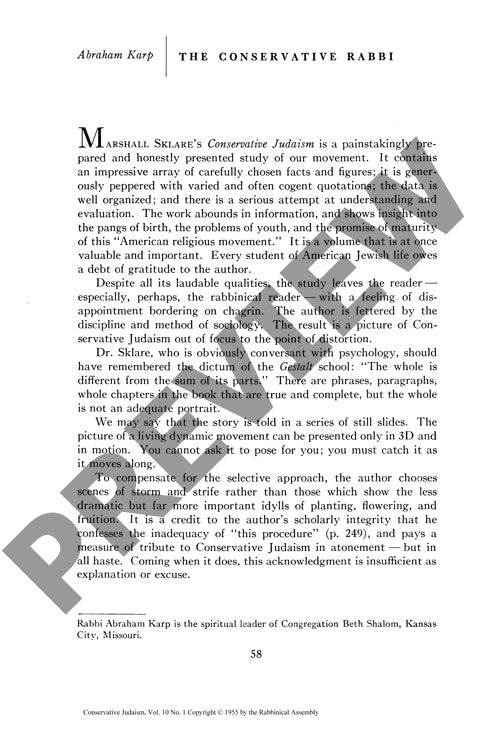The Conservative Rabbi
Couldn't load pickup availability
Conservative rabbis wield far greater influence over American Jewish congregational life than previously documented in sociological literature. Marshall Sklare's influential study of Conservative Judaism, while methodologically sophisticated, mischaracterizes the movement by reducing its dynamic religious elements to sociological data points. Through systematic analysis of Sklare's work, particularly his chapter on rabbinical leadership, this review challenges his portrayal of Conservative Judaism as primarily lay-directed. Evidence demonstrates that Conservative rabbis have played a more pivotal role than their Reform or Orthodox counterparts in shaping congregational ideology, practices, and programs. Leading Conservative congregations have become inextricably linked with specific rabbis who defined their institutional character, contradicting Sklare's depiction of these leaders as spiritually anemic functionaries. The analysis further contests Sklare's assessment of the Jewish Theological Seminary's impact and reveals that Conservative rabbis represent the most significant force in contemporary American Jewish community life, surpassing even the influence of historical European rabbinical figures. Rather than being driven solely by social forces, as Sklare suggests, the Conservative movement's development and prominence stem from its rabbis' dedication, ability, and faith.

More Information
-
Physical Description
-
Publication Information
Published 1955
ISBN
-
Publication Credits
Abraham Karp

